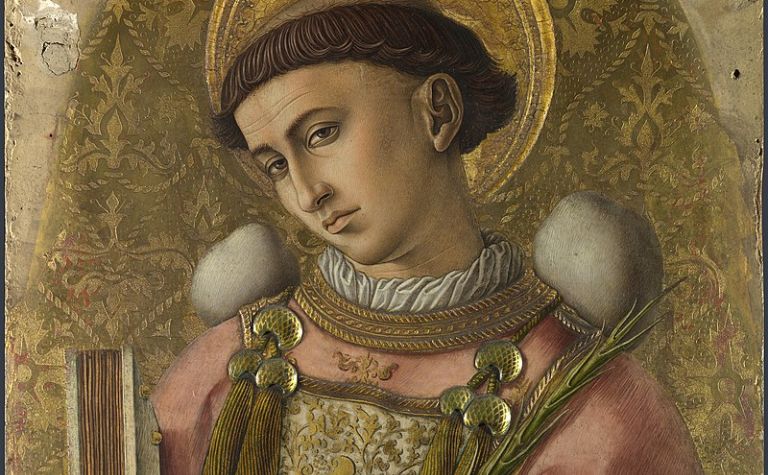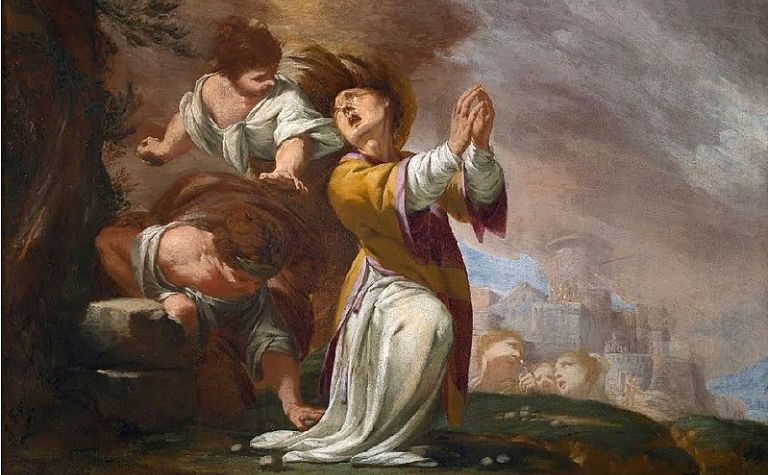A martyr is someone who dies for their faith. The Bible is full of stories about martyrs, from Abel in the book of Genesis (4:18) to Antipas of Pergamum in the book of Revelation (2:13). Christians hold martyrs in high esteem because of their strong faith and their willingness to die for their commitment to Jesus Christ. A common question many people ask is, who was the first Christian martyr?
Stephen was the first Christian martyr killed after Pentecost. Persecutors of the early church killed him, alleging that he committed blasphemy. The book of Acts reports that Stephen’s testimony about Jesus Christ upset the Sanhedrin, the Jewish ruling council, who stoned him to death (Acts 7:54-59).
Why isn’t John the Baptist or Jesus considered the first martyrs? Why did the Sanhedrin stone Stephen to death? How did Stephen anger the religious authorities? Did the Jewish leaders have the right to kill Stephen? Keep reading to learn the answers to these questions and others.
Also see Who Is the Founder of Christianity? to learn more.

Why isn’t John the Baptist or Jesus considered the first martyrs?
Readers familiar with the Gospels know that Herod Antipas had John the Baptist beheaded at the request of Herodias (Matt. 14:1-12). John had upset Herod when he declared that the Jewish leader’s relationship with Herodias, his brother Phillip’s wife, was unlawful. This accusation angered Herodias, who told Herod to behead John, which he had his men do.
While Herod killed John because of what he said as a prophet, most historians don’t consider him the first “Christian” martyr because Jesus hadn’t yet died on the cross, rose from the dead, or sent the Holy Spirit at Pentecost. In other words, John’s death belonged to a different era before the establishment of the Church.
A few historians refer to Jesus as a martyr but not many. In a general sense, the crucifixion fits the definition of a person dying for what they believe. However, most historians distinguish between a founder and his followers. Some theologians also argue Jesus didn’t merely die for what he believed, but for who he was. This distinction makes his death categorically different than Stephen’s.
Also see How Did Christianity Grow? to learn more.

Why did the Sanhedrin stone Stephen to death?
Stephen’s narrative in the New Testament reflects a powerful and unwavering commitment to Jesus Christ. He was a holy and devoted servant whose faithfulness knew no bounds.
Luke reports that Stephen was “full of grace and power, was doing great wonders and signs among the people” prior to his death (Acts 6:8). His ministry angered the Jewish leaders who falsely accused him of blasphemy, took him into custody and made him stand in front of the Jewish ruling council (Acts 6:9-15).
Stephen is accused of blasphemy
Acts 7 records the speech that Stephen made to the Jewish ruling council. It mentioned the patriarchs of Genesis, Moses and the Exodus, and Israel’s rebellion against God. Toward the end of the speech, he told called the Jewish leaders “stiff-necked” people who “always resist the Holy Spirit (7:51). He further alleged that they betrayed the Messiah, Jesus Christ, “the Righteous One,” and murdered him (7:52).
In response, the Jewish leaders “were enraged” and “ground their teeth at him” (v. 54). Yet, Stephen, “full of the Holy Spirit, gazed into heaven and saw the glory of God, and Jesus standing at the right hand of God. And he said, ‘Behold, I see the heavens opened, and the Son of Man standing at the right hand of God'” (v. 55-56). Stephen’s vision and words angered the Jewish leaders even more.
Luke reports that the Jewish leaders “cried out with a loud voice and stopped their ears and rushed together at him. Then they cast him out of the city and stoned him. And the witnesses laid down their garments at the feet of a young man named Saul” (7:57-58). Saul, whom Luke introduces in this story, is later renamed Paul after the risen Jesus meets on the road to Damascus and becomes his follower and missionary.
Did the Jewish leaders have the right to kill Stephen?
Didn’t the Roman Empire have jurisdiction over matters involving capital punishment? New Testament scholar F.F. Bruce explains the answer. “When Judea became a Roman province in A.D. 6, the Jewish administration was deprived of capital jurisdiction, which the prefect reserved to himself. In one area, however, capital jurisdiction was left to the Sanhedrin: that was in cases affecting the sanctity of the temple.”
He continues, “Where that sanctuary was violated, by word or action, the Jewish authorities were empowered to execute their own law. The penalty for blasphemy was death by stoning, and this penalty was carried out against Stephen.” [1]
Luke records the last moments of Stephen’s life, including his final words, “And as they were stoning Stephen, he called out, ‘Lord Jesus, receive my spirit.’ And falling to his knees he cried out with a loud voice, ‘Lord, do not hold this sin against them.’ And when he had said this, he fell asleep” (Acts 7:59-60).
Also see What Does It Mean To Be A Christian? to learn more.

Stephen had a servant’s heart
In the early days of the church, so many people were becoming Christians and joining the community of believers that a problem arose “against the Hebrews because their widows were being neglected in the daily distribution” (Acts 6:1b). The church leaders were responsible for preaching Scripture and prayer, which meant they had to ask others to help serve food.
Some people may assume that serving food to widows is a menial task, but in the church that Jesus established, it was an important responsibility. Those called to serve had to meet three requirements, which Acts 6:3 describes: “Therefore, brothers, pick out from among you seven men of good repute, full of the Spirit and of wisdom, whom we will appoint to this duty” (ESV).
- The servants had to have a good reputation; Stephen met the requirement
- They had to be full of the Holy Spirit; Stephen met the requirement
- They had to be full of wisdom; Stephen met the requirement
Interestingly, the Greek word translated as “reputation” comes from the word for martyr (martureó). The word’s range of meaning includes “bearing witness,” “giving evidence,” “testifying,” and “giving a good report.” People in the church respected Stephen’s character because he reflected their beliefs and values well. Later, he would give “testimony” to Jesus when his faithfulness cost him his life.
The blood of martyrs is the seed of the Church
Old Testament Israel and the New Testament church understandably mourn the death of their beloved brothers and sisters. Yet, history shows that God uses martyrs as a catalyst for his purposes. As the early church father Tertullian is reported to have said, “The blood of the martyrs is the seed of the Church.”
Also see Christianity vs Mormonism: Comparison to learn more.
References:
[1] The Apostle of the Heart Set Free by F.F. Bruce. p. 68.
[2] Source
Related Questions
Most Christians worship God in churches on Sunday mornings, although a small number gather on Saturday mornings or evenings. Churches have hosted Sunday morning services for 2,000 years. For many...
Revelation 3:16 is the only place in the New Testament where churchgoers are called lukewarm, and Jesus is the one who utters the description. It's clear from the context of the passage that the...
